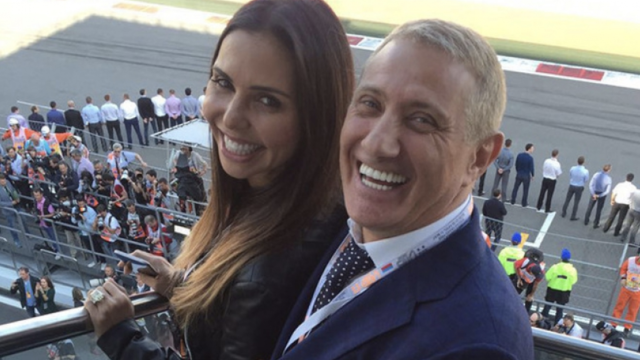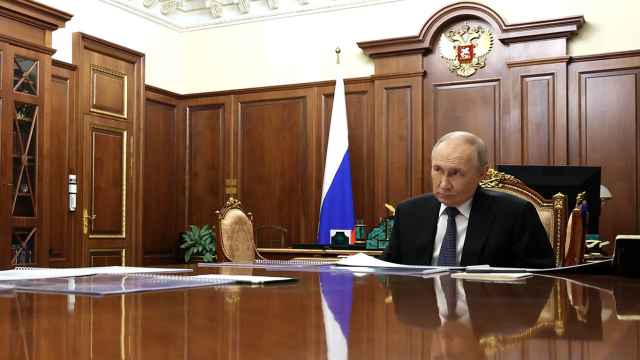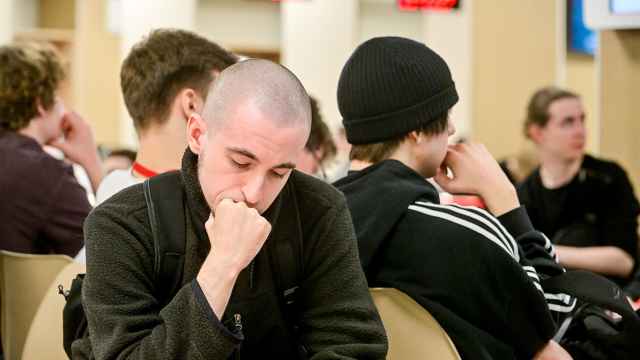| About this blog
|
| Window on Eurasia covers current events in Russia and the nations of the former Soviet Union, with a focus on issues of ethnicity and religion. The issues covered are often not those written about on the front pages of newspapers. Instead, the articles in the Windows series focus on those issues that either have not been much discussed or provide an approach to stories that have been. Frequent topics include civil rights, radicalism, Russian Islam, the Russian Orthodox Church, and events in the North Caucasus, among others.
Author Paul Goble is a longtime specialist on ethnic and religious questions in Eurasia. Most recently, he was director of research and publications at the Azerbaijan Diplomatic Academy. He has served in various capacities in the U.S. State Department, the Central Intelligence Agency and the International Broadcasting Bureau as well as at the Voice of America and Radio Free Europe/Radio Liberty and at the Carnegie Endowment for International Peace. He writes frequently on ethnic and religious issues and has edited five volumes on ethnicity and religion in the former Soviet space. |
Boris Gryzlov, the chairman of United Russia's Higher Council of the Parliamentary Majority, told Gazeta.ru that his party "had never feared and does not now fear competition. Just the reverse," he continued, "we develop it wherever possible because the example of the CPSU is before all our eyes, and no one wants to repeat it."
"The view that United Russia is not interested in strong competitors is a superficial approach," he said. "In fact, the strengthening of the party system of Russia is one of the most important tasks of our party" because "strong and responsible parties are needed for the stability of Russian democracy."
But Gryzlov made it clear that he does not expect such parties to challenge United Russia for control of the parliament, noting that "the presence of a constructive opposition is always a good thing for the dominating party" and underscoring that "we have confidence in our strengths and in our voters."
As Kasparov.ru commentator Sergey Petrunin pointed out, however, what Gryzlov and United Russia want is an opposition they themselves have selected and can ensure will behave, in much the same way that the Communists allowed token opposition parties in East Germany and several other Soviet bloc countries.
But in seeking precisely that arrangement, he continued, the party is "copying namely the worst features of the CPSU," thus ensuring that United Russia will become increasingly marked by "a bureaucratic approach," "isolation from the real problems of the country" and "an unwillingness to work with living people."
That a writer associated with Garry Kasparov's opposition party said that certainly comes as no surprise, but today's edition of Kommersant features a report that a man running for mayor of Petrozavodsk on the United Russia ticket, businessman Aleksandr Temnyshev, has resigned from the party, accusing the regional leadership of that party of "hypocrisy" and "being cut off from the party's rank and file."
Temnyshev said yesterday that he was taking this step because United Russia's regional leaders were "isolated" from the membership and included "people who are conducting a hypocritical policy." The regional leaders responded that he should surrender his party card or face expulsion.
Temnyshev, a local businessman who collected nearly twice as many signatures as required for registering his candidacy for the July 5 elections, said party officials had ignored him when he asked them in September to consider him as their candidate and chose instead to back the speaker of the Karelian parliament for the mayor's job.
"United Russia in Karelia had become transformed into the CPSU of the period of collapse and holds onto power only thanks to administrative resources and the authority of its Moscow leaders," Temnyshev said.
The resignation of one politician from United Russia obviously does not mean that the pro-Kremlin party is at risk of going the way of the CPSU in the immediate future. But as some may remember, it was the resignation of one regional CPSU official that hastened the decline of that party and of the political system the Communists built.
Consequently, Temnyshev's declaration, coming in this anniversary week and only two days after Gryzlov suggested that United Russia does not want to go the way of the CPSU, could lead others to follow his example, especially if he does better than expected in the elections, something United Russia will almost certainly try to ensure does not happen.
A Message from The Moscow Times:
Dear readers,
We are facing unprecedented challenges. Russia's Prosecutor General's Office has designated The Moscow Times as an "undesirable" organization, criminalizing our work and putting our staff at risk of prosecution. This follows our earlier unjust labeling as a "foreign agent."
These actions are direct attempts to silence independent journalism in Russia. The authorities claim our work "discredits the decisions of the Russian leadership." We see things differently: we strive to provide accurate, unbiased reporting on Russia.
We, the journalists of The Moscow Times, refuse to be silenced. But to continue our work, we need your help.
Your support, no matter how small, makes a world of difference. If you can, please support us monthly starting from just $2. It's quick to set up, and every contribution makes a significant impact.
By supporting The Moscow Times, you're defending open, independent journalism in the face of repression. Thank you for standing with us.
Remind me later.






